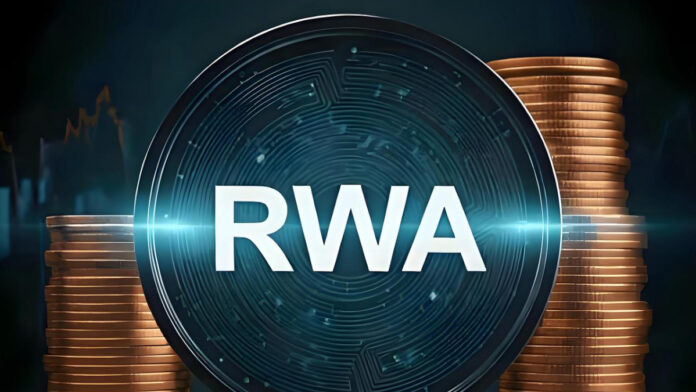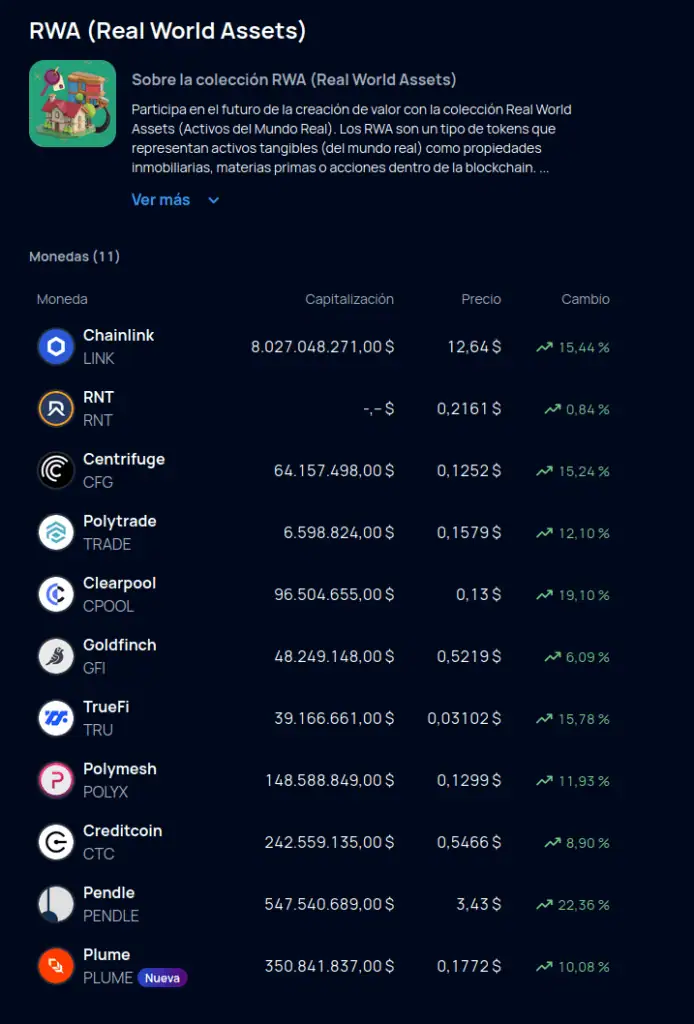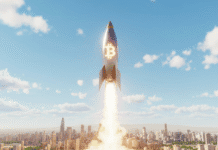
Discover how Real World Assets (RWA) transform financial investing with tokenization, transparency, and liquidity.
The convergence of the traditional financial world and the disruptive innovation of blockchain technology has given rise to a new paradigm: Real World Assets (RWA). These real-world assets, tokenized and brought to the blockchain, are transforming the way financial institutions operate, invest, and manage their assets.
Let's imagine for a moment a world where ownership of a property, a work of art, or even a patent can be fractioned and traded through digital tokens. This vision, which once seemed like science fiction, is now a tangible reality thanks to RWAs. These tokens not only democratize access to investments traditionally reserved for a select few, but also bring transparency, liquidity, and efficiency to financial markets.
But What are the tokens that are setting the pace in this new ecosystem? Join us on this tour of the most innovative and promising projects paving the way for institutional adoption of RWAs. From decentralized oracles that verify asset authenticity to blockchains specifically designed to comply with financial regulations, we'll discover how these tokens are transforming the global financial landscape.
And if you want to discover and be part of a universe of possibilities thanks to the tokenization of real assets, don't forget to start with a platform that prioritizes your protection and meets the most demanding standards. Especially now that all these tokens are appreciating in value.
TRADE WITH RWA TOKENS
Chainlink (LINK): Decentralized Oracles for Real-World Asset (RWA) Tokenization
chainlink It has become a fundamental pillar for the tokenization of real-world assets thanks to its decentralized oracle network. These oracles act as secure and trustworthy bridges between real-world data and blockchains, allowing smart contracts to access accurate and up-to-date information about the value, ownership, and other relevant characteristics of tokenized assets.
Chainlink's importance lies in its ability to solve the "oracle problem," one of the biggest challenges in developing decentralized applications that interact with external data. Without trusted oracles, smart contracts cannot verify the authenticity of the information they receive, which could lead to errors, fraud, or manipulation. Chainlink solves this problem through a decentralized network of nodes that verify and validate data before transmitting it to the blockchain, thus ensuring the integrity and security of transactions.
A clear example of Chainlink's utility in the context of RWAs is real estate tokenization. Imagine a property that has been tokenized, with tokens representing a fraction of the ownership. To determine the value of those tokens, it's necessary to access accurate data on the property's market price, rental income, and other relevant factors. Chainlink can provide this data securely and reliably, allowing smart contracts to adjust the value of tokens in real time and facilitate the buying, selling, and trading of these assets.
Buy CHAINLINK (LINK) Now!Additionally, Chainlink is working on developing new protocols and tools that will further facilitate the tokenization of real-world assets. These include Proof of Reserve (PoR) protocols, which allow verification of the existence and ownership of the assets underlying the tokens, increasing trust and transparency in the RWA ecosystem. Chainlink is also exploring the possibility of integrating regulatory compliance data into its oracles, which would facilitate institutional adoption of RWAs by ensuring that transactions comply with applicable laws and regulations.
Mantra (OM): A regulation-focused Layer 1 blockchain for institutional RWAs
Mantra It stands out as a Layer 1 blockchain specifically designed to meet the needs of financial institutions looking to participate in the RWA market. Its primary focus is ensuring regulatory compliance throughout all stages of the asset tokenization and trading process, making it an attractive platform for companies operating in regulated environments.
One of Mantra's key features is its support for the most stringent regulatory compliance standards, such as KYC (Know Your Customer) and AML (Anti-Money Laundering). The platform incorporates mechanisms to verify the identity of transaction participants and to detect and prevent money laundering and other illicit activities. This is critical for financial institutions to operate with confidence in the RWA ecosystem, knowing they are complying with their legal and regulatory obligations.
Additionally, Mantra offers a suite of tools and services designed to facilitate the tokenization and management of real-world assets. These include integrated modules for token issuance, asset custody, and governance management. The platform also provides APIs and SDKs that allow developers to build custom applications to interact with tokenized RWAs. This facilitates the creation of innovative solutions for a variety of use cases, such as real estate project financing, debt securitization, and alternative asset investing.
Buy MANTRA (OM) Now!A concrete example of how Mantra is facilitating the institutional adoption of RWAs is its collaboration with real estate companies to tokenize properties and offer them to investors around the world. Thanks to Mantra's platform, investors can buy and sell fractions of properties quickly, easily, and transparently, without the need for traditional intermediaries. This opens up new investment opportunities for individuals previously inaccessible to the real estate market and allows property owners to obtain liquidity more efficiently.
Ondo Finance (ONDO): Decentralized Investment Bank for the DeFi Ecosystem
Ondo Finance It presents itself as a decentralized investment bank that seeks to connect the world of traditional finance with the DeFi ecosystem, facilitating the creation and management of tokenized financial products based on real-world assets. Its goal is to offer financial institutions and retail investors a simple and efficient way to access the benefits of asset tokenization, while minimizing the risks and complexities associated with blockchain technology.
One of Ondo Finance's key innovations is its liquidity-as-a-service protocol, which allows RWA token creators to quickly and efficiently access liquidity on decentralized exchanges (DEXs). The protocol works by creating liquidity pools that combine RWA tokens with stablecoins or other digital assets. Liquidity providers receive rewards in the form of ONDO tokens, incentivizing participation and ensuring the availability of liquidity for RWA tokens.
Additionally, Ondo Finance offers a range of tokenized financial products designed to meet the needs of diverse types of investors. These include "Ondo Vaults," investment vaults that allow users to deposit their digital assets and earn returns based on automated investment strategies. These strategies can include investing in tokenized RWAs, participating in DeFi protocols, and actively managing liquidity.
Buy ONDO FINANCE (ONDO) Now!One example of how Ondo Finance is revolutionizing the investment world is its collaboration with private debt companies to tokenize loans and offer them to institutional and retail investors. Thanks to the Ondo Finance platform, investors can access private debt investment opportunities with greater transparency, liquidity, and efficiency than through traditional channels. This allows companies to obtain financing more quickly and economically, while offering investors the opportunity to diversify their portfolios and achieve attractive returns.
Algorand (ALGO): A blockchain platform for tokenizing real-world assets
Algorand It has positioned itself as an ideal blockchain platform for the tokenization of real-world assets thanks to its innovative architecture, high efficiency, and low cost. Its Pure Proof-of-Stake (PPoS) consensus protocol guarantees network security and scalability while minimizing energy consumption and transaction fees. This makes it an attractive option for companies looking to tokenize assets sustainably and cost-effectively.
One of Algorand's key features is its native support for token creation and management through Algorand Standard Assets (ASA). ASAs allow developers to create custom tokens representing any type of asset, whether physical or digital, without the need for complex smart contracts. This greatly simplifies the tokenization process and reduces development and maintenance costs.
Additionally, Algorand offers a number of tools and services designed to facilitate the integration of RWAs with the blockchain ecosystem. These include Atomic Transfers, which enables atomic transfers of multiple assets between different parties, which is useful for settling complex transactions involving RWAs. The platform also provides support for digital identity creation and data verification, facilitating regulatory compliance and identity management within the RWA ecosystem.
Buy ALGORAND (ONDO) Now!One example of how Algorand is driving RWA adoption is its collaboration with energy companies to tokenize carbon credits and facilitate their trading. Using the Algorand platform, companies can issue tokens representing verified carbon credits and offer them to investors around the world. This creates a more efficient and transparent market for carbon credits, incentivizing emissions reductions and combating climate change.
XDC Network (XDC): A Bridge between Traditional Finance and Decentralized Technologies
XDCNetwork It presents itself as a Layer 1 blockchain designed to connect traditional finance with decentralized technologies, with a special focus on the tokenization of real-world assets. Its hybrid architecture, which combines features of public and private blockchains, makes it a versatile platform adaptable to the needs of various types of financial institutions.
One of the main advantages of XDC Network is its high efficiency and low cost. The network uses a Delegated Proof-of-Stake (DPoS) consensus protocol that allows for fast and cost-effective transaction processing, making it an attractive option for tokenizing assets that require high transaction volumes, such as securities and commodities.
Additionally, XDC Network offers several features designed to facilitate the integration of RWAs with the blockchain ecosystem. These include RESTful APIs, which allow existing applications to interact with the blockchain easily and efficiently. The platform also provides support for creating digital identities and data verification, facilitating regulatory compliance and identity management within the RWA ecosystem.
Buy XDC NETWROK (XDC) Now!One example of how XDC Network is facilitating the institutional adoption of RWAs is its collaboration with companies in the international trade sector to tokenize trade documents and streamline financing processes. Using the XDC Network platform, companies can issue tokens representing verified trade documents, such as letters of credit and invoices, and use them as collateral to obtain financing more quickly and cost-effectively. This reduces the costs and wait times associated with international trade and makes it easier for businesses of all sizes to access financing.
An expanding ecosystem
In conclusion, RWA tokens are transforming the institutional world by offering new investment opportunities and greater transparency and efficiency in financial markets. The projects we've analyzed in this article—Chainlink, Mantra, Ondo Finance, Algorand, and XDC Network—are just a few examples of how blockchain technology is revolutionizing the way financial institutions operate and manage their assets.
As RWA adoption continues to grow, we can expect to see increased innovation and greater integration between the world of traditional finance and the DeFi ecosystem.
Investing in cryptoassets is not fully regulated, may not be suitable for retail investors due to high volatility and there is a risk of losing all invested amounts.


